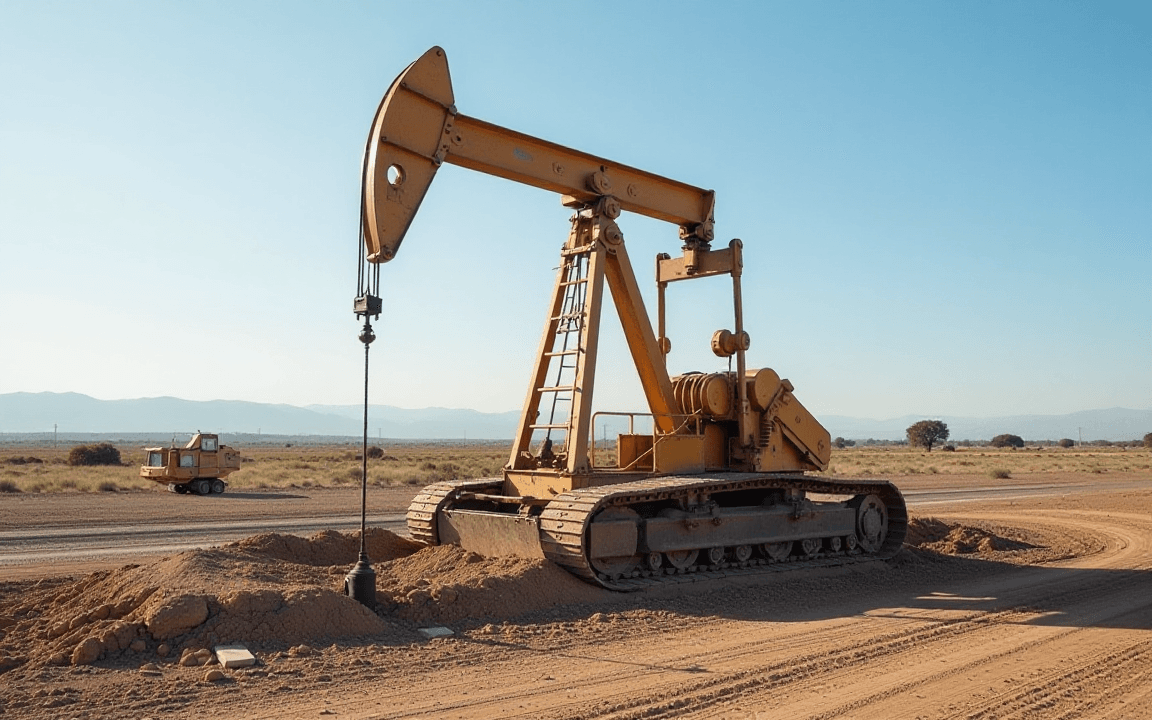Oil prices under pressure as oversupply looms; may fall further if China stockpiling slows

News Summary
Oil prices are under pressure due to a continued increase in global production from OPEC and OPEC+. Major energy agencies anticipate a substantial oversupply in the crude oil market. Despite the increased supply, OECD inventories remain below their five-year average, though the deficit has marginally decreased. This is largely attributed to China's aggressive stockpiling, which accumulated nearly 110 million barrels of crude oil between April and August, pushing its total stocks 30% higher than in 2019. China's crude oil imports in October were 11.4 million bpd, an 8% year-on-year increase, signaling a sustained build-up of national reserves. The critical question for the market is how long China's aggressive stockpiling will continue and, more importantly, when this accumulated oil will begin flowing into the tanks of industrialized OECD countries. Commodity analyst Barbara Lambrecht suggests that if new figures show a further increase in OECD stocks or signs of a slowdown in China's stockpiling, oil prices could come under additional pressure. Currently, West Texas Intermediate crude oil stands at $60.04 per barrel, and Brent crude oil at $63.95 per barrel. Despite morning strength, a bearish tone persists in the market.
Background
Following the 2024 US Presidential election, Donald J. Trump is the incumbent US President, and his administration's "energy dominance" policies continue to promote domestic oil and gas production. Concurrently, the global crude oil market is experiencing complex supply and demand dynamics. The production decisions of OPEC and its allies (OPEC+) are key factors influencing global supply. Despite earlier concerns about market tightness due to sanctions, recent sustained production increases by OPEC+ have eased these worries, leading to a significant rise in global supply. China, as one of the world's largest crude oil importers, plays a pivotal role in global inventory levels and oil price trends through its strategic crude oil stockpiling behavior.
In-Depth AI Insights
What are the underlying strategic implications of China's sustained aggressive oil stockpiling beyond mere economic demand? - This could represent China's geopolitical hedging strategy against future uncertainties, such as potential conflicts in the South China Sea or escalating trade/military tensions with the U.S., ensuring its energy security. - China is leveraging the current global oversupply to build long-term energy reserves at relatively lower prices, enhancing its energy independence and potentially granting it greater market influence in the future. - The extensive stockpiling might also signal China's anticipation of future global economic volatility or an increase in its own industrial demand. How might the Trump administration's energy policies intersect with the looming global oil oversupply and China's strategic actions? - President Trump's "energy dominance" agenda will likely encourage further increases in U.S. domestic oil production, exacerbacerbating the global oversupply situation. - If U.S.-China trade tensions escalate, the importance of China's strategic reserves would be further highlighted as a hedge against potential supply disruptions. - U.S. foreign policy and influence in the Middle East could also indirectly impact OPEC+'s production decisions, though the specific mechanisms are complex and fluid. If China's oil stockpiling slows or reverses, what are the broader economic and market ripple effects for investors? - Significant downward pressure on oil prices, severely impacting the profitability and investment outlook for global oil producers, including U.S. shale companies and OPEC+ members. - A decline in global energy costs could lead to deflationary pressures, influencing central bank monetary policy decisions and potentially prompting more accommodative stances. - If global inventories swell significantly, major consuming nations would face logistical and storage challenges, potentially creating ripple effects across global supply chains. - Energy sector equities, bonds, and related upstream/downstream industries would face direct impacts, requiring investors to re-evaluate their exposure in these areas.